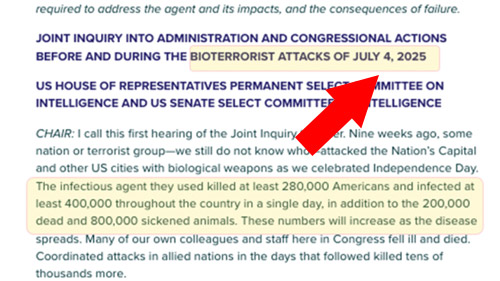| Recent Featured Videos and Articles | Eastern “Orthodoxy” Refuted | How To Avoid Sin | The Antichrist Identified! | What Fake Christians Get Wrong About Ephesians | Why So Many Can't Believe | “Magicians” Prove A Spiritual World Exists | Amazing Evidence For God | News Links |
| Vatican II “Catholic” Church Exposed | Steps To Convert | Outside The Church There Is No Salvation | E-Exchanges | The Holy Rosary | Padre Pio | Traditional Catholic Issues And Groups | Help Save Souls: Donate |  |









 " />
" /> " />
" /> " />
" /> " />
" /> " />
" />




Bob Sungenis on baptism of desire and misquoting the Council of Trent
Bob Sungenis consistently misquotes the Council of Trent, Sess. 6, Chap. 4. [For a full discussion of this passage see the section on Sess. 6, Chap 4 in section 16 of: The Book: Outside the Catholic Church There is Absolutely No Salvation.] Sungenis uses the same misquote of this passage again and again that was refuted in our book. People have written him about it, but he still misquotes Trent. Such an act is a mortal sin. Someone recently wrote him again to rebuke him:
Mr. Sungenis’ statement here is nonsense. One example is sufficient to explode it.
This is a true statement which means that both matter and form are necessary for a sacrament. If we substitute “except through” for “without” we see that the meaning is changed and the statement is rendered false.
This is a false statement which indicates that either matter or form is sufficient for a sacrament. It means something different from the statement above. Thus, “except through” does not always mean the same thing as “without.”
I continue with Mr. Sungenis’ response:
Sungenis: Let's look at both possibilities:
First using "except through"
"...and this translation after the promulgation of the Gospel cannot be erected [sic] except through the laver of regeneration, or a desire for it, as it is written..."
Now with "without":
"...and this translation after the promulgation of the Gospel cannot be erected [sic] without the laver of regeneration, or a desire for it, as it is written..."
The latter usage would clearly indicate that one cannot be baptized without water or the desire for water, and thus the condition of using water is fulfilled both in the usage of "without" and "except through."
Lastly, I would suggest that whoever is trying to teach you that there is no such thing as a baptism of desire cease and desist. This is a dogmatic teaching of the Church, and it is infallible. Any attempt to alter it will simply bring terrible consequences.
Sungenis’ comment here doesn’t make sense. He has confused the entire subject of Sess. 6, Chap. 4, which is what cannot be missing in Justification, and confused it with what is necessary for baptism. Baptism of desire has never been taught by the Catholic Church.
Those who deny baptism of desire will not suffer terrible consequences. No, Mr. Sungenis, your denial of the defined dogma that the Sacrament of Baptism is necessary for salvation has brought down on your head terrible consequences.
Your consistent and deliberate misquoting of the Council of Trent has brought down on your head mortal sin.
God made sure that the words “as it is written” were included in that very sentence to ensure that the Council was not teaching baptism of desire by its wording in that passage. The passage thus teaches – as it is written – unless a man is born again of water and the Holy Ghost he cannot enter into the Kingdom of God. And if what baptism of desire proponents say were correct, we would actually have the Council teaching us in the first part of the sentence that John 3:5 is not to be taken as it is written (desire sometimes suffices), while simultaneously contradicting itself in the second part of the sentence by telling us to take John 3:5 as it is written (sicut scriptum est)! But this is absurd, of course. Those who obstinately insist that this passage teaches baptism of desire are simply wrong and are contradicting the very words given in the passage about John 3:5. The inclusion of “AS IT IS WRITTEN, unless a man is born again of water and the Holy Spirit, he cannot enter the kingdom of God (John 3:5)” shows the perfect harmony of that passage in Trent with all of the other passages in Trent and other Councils which affirm the absolute necessity of water baptism with no exceptions.
Sign up for our free e-mail list to see future vaticancatholic.com videos and articles.
Recent Content
^